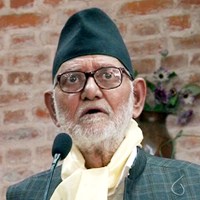Expectations are high for Nepal’s new prime minister, Sushil Koirala, who was elected to head the government by more than two-thirds of lawmakers’ votes last week and whose centrist party has many more potential allies in the recently elected legislature than it did in the previous assembly. However, challenges to bringing stability to the country and writing the nation’s new constitution remain daunting.
Members of the second Constituent Assembly, elected in November, chose Koirala of the Nepali Congress (NC) party on Feb. 10 as the fifth prime minister since Nepal held its first democratic elections six years ago. The first assembly was dissolved in May 2012 after it failed to promulgate a new constitution despite repeated extensions of its tenure.
The frequent change of leadership and the failure to reach consensus on the provisions of a new charter can be blamed on ideological differences, divisions over Nepal’s role in the regional balance of power and the pursuit of political gains by legislators and parties.

